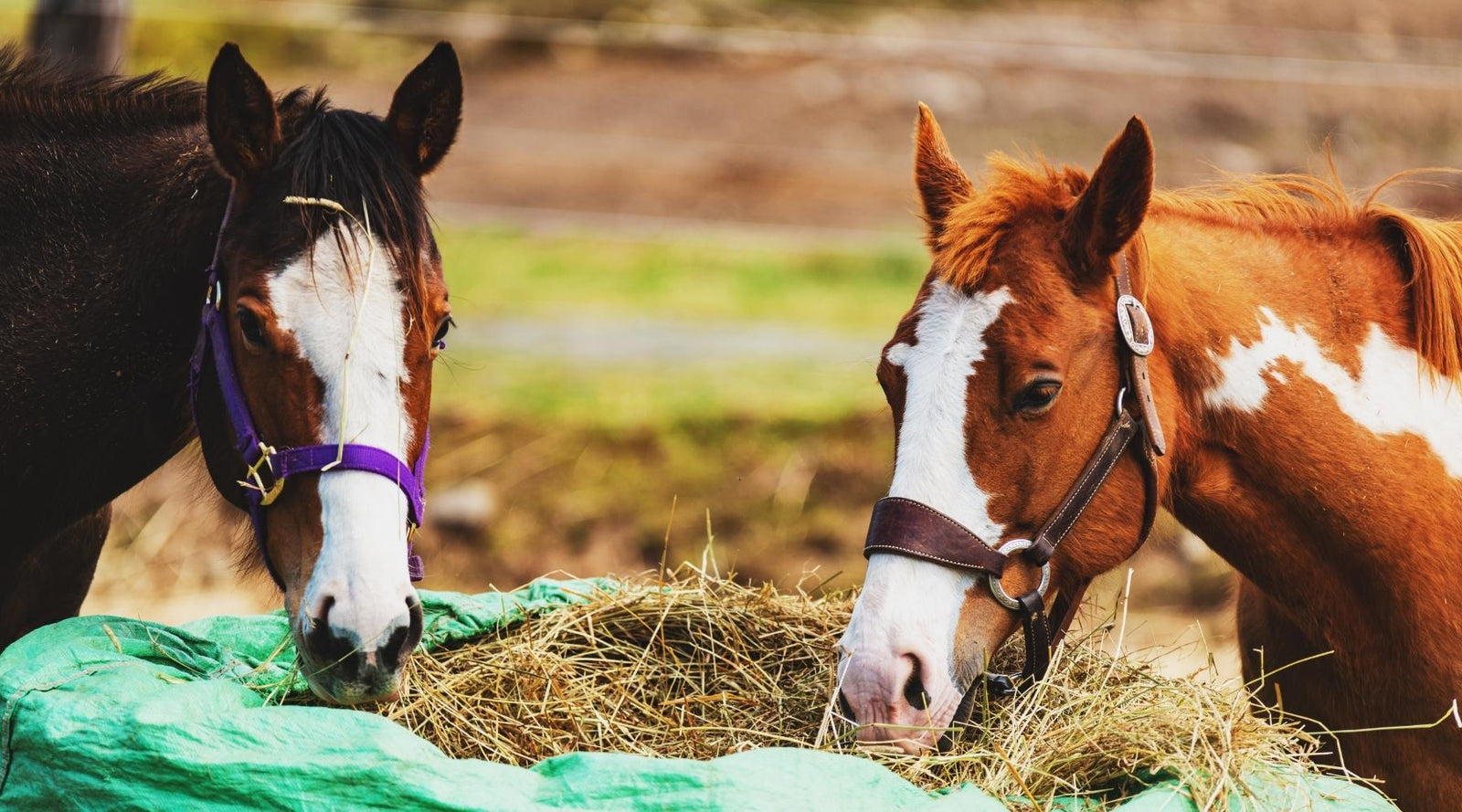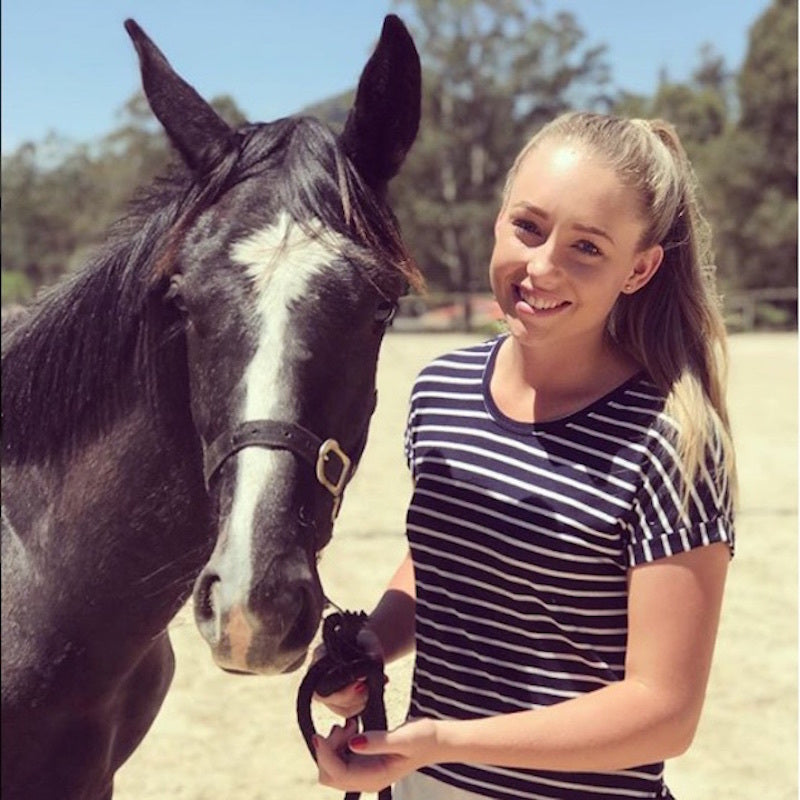Horse & Rider
Digestive Health for Horses - 6 Natural Remedies to Try
by Fiona Lane July 08, 2025

Winter can be a challenging time for digestive health in horses. The colder and wetter weather often means more stable time, and with that comes a change in both diet and in daily routine. When less exercise and movement is combined with eating drier and more fibrous winter feed, digestion issues often come to the fore.
Key Highlights
- Cold, wet winter weather brings a change in diet which can impact on digestive health – including colic, ulcers, diarrhoea and loss of condition.
- Spot early signs of potentially serious conditions such as colic – prompt attention and treatment is important.
- Discover natural remedies for horses such as Colic Aid, EquiUlca Guard or Active, Gastric Tonic or Fecal Water Syndrome Support.
- Be prepared to manage digestive issues quickly – having remedies on hand can provide support while waiting for a visit from your vet.
- Find additional tips on managing other winter conditions such as mud fever, abscesses, and laminitis in our linked blogs.
Our range of natural oral remedies can be used to support minor digestive ailments. Digestive issues can be serious so please seek the advice of your veterinarian if you are worried your horse is in pain or suffering.
Colic
Horses are natural grazers, so when this changes to having feed put out once or twice a day it can put pressure on the intestines, resulting in a condition called impaction colic. This is when the much drier and fibrous feed causes a blockage in the gut where the large colon narrows.
Using a high-quality feed that is introduced slowly during the autumn, and providing plenty of clean, fresh water to encourage drinking can help, but when colic strikes things can get serious very quickly.
Colic is an emergency that requires prompt treatment from a veterinarian, but while waiting for the vet to arrive, our Colic Aid – Equine remedy can help by promoting a normal immune response to the discomfort of abdominal spasms. We think this is an excellent remedy to keep in the shed!
Ulcers
Ulcers can also be more common in winter. A horses’ stomach is designed to digest a constant stream of small amounts of food, so time without food between meals can increase the risk of ulcers forming. Stressful situations – such as more stable confinement – don’t help either!
Our EquiUlca Guard is professionally formulated to prime the immune system to respond to the risk of gastric ulcers, while EquiUlca Active is for once a gastric ulcer is suspected or confirmed. All our remedies are safe to use alongside veterinary care.
Diarrhoea or Excessive Gas
A diet heavy in winter feed can also cause diarrhoea. Horses are “non-ruminant herbivores” which means they only have one stomach. Everything they eat goes into the foregut of the stomach where digestion begins, but when their food is high in starch, or when they’re eating larger quantities of food at one time, the extra food will often be passed through to the hindgut where it starts to ferment. This fermentation upsets the pH balance causing the gut to become acidic, causing Fecal Water Syndrome. Horses with FWS often maintain good health, but the watery stool can irritate the skin and this can often be hard to manage.
Our Fecal Water Syndrome Support remedy has been professionally formulated to support horses with this condition, while our Gastric Tonic – Equine can be used for more minor gut disturbances.
Loss of Condition
It’s quite normal for horses to lose some weight and condition over winter, particularly if they are being stabled. Our Conditioning Tonic supports gut health to promote the assimilation of vitamins and minerals from the diet. This remedy can also be used to support poor doers or horses that are poorly nourished or refusing to eat. Of course any sudden change in condition should always be taken seriously and assessed by a veterinarian.
Low Mood
More stable time over the winter can result in horses experiencing restlessness, anxiety, low mood or generalised stress. Our Chilled Out Horse remedy is a feel-good supplement that supports a calm mindset without sedation. It’s one of our most popular remedies! In fact, we’ve got a whole range of calming remedies for horses, with each one targeting a specific symptom or cause. Read our Calm the Farm blog post to find out more about where, when and how each remedy can be used!
Mud Fever
It’s not just the digestive system that can cause problems during the winter months. Bacterial conditions like mud fever, greasy heel and rain scald also abound. We’ve put together a guide to prevention and management of mud fever, including more information about our popular Mud & Rain remedy.
Hoof Care
All that wet and wild weather can also play havoc with hooves. Abscesses, laminitis and thrush are just a few conditions that can often come to the fore during winter. We’ve got a range of remedies that can help – to find out more read this blog post on how to manage 7 common hoof conditions.
Our range of remedies is professionally formulated to help make winter less challenging for you and your horse, pets or livestock.
General Disclaimer: Always follow dosing instructions. Our remedies are formulated to support the natural immune system of horses, pets, livestock, and people. We do not claim to treat, medicate, or cure any health conditions. If you are worried an animal may be in pain or suffering, please contact your veterinarian.




